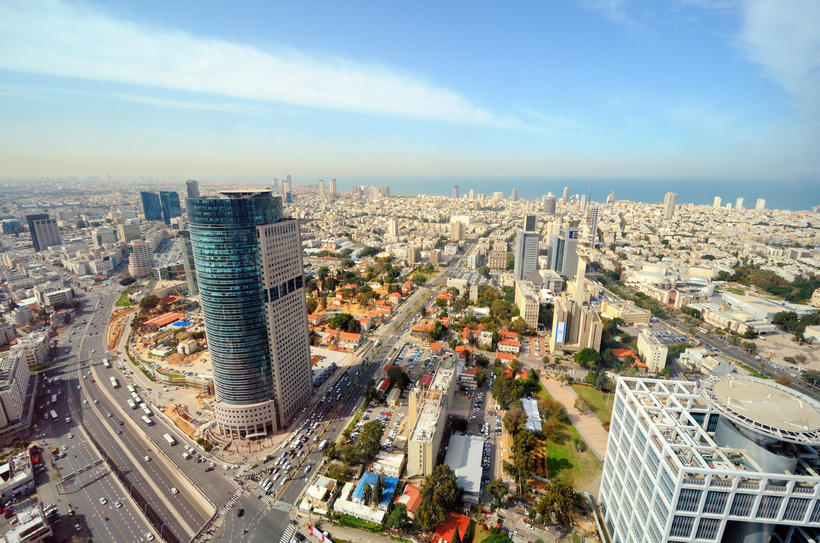Spurred by a worldwide migration of refugees and a fraught geopolitical climate, calls for isolationism have exploded across Europe and the United States, culminating in Brexit and the current anti-global Trump administration, respectively.
Given our political climate, now is a difficult time to call for globalization, but that makes it all the more essential.
Fortunately, with the democratizing power of digital media, and the overwhelmingly progressive mindset of the Millennial generation, especially the entrepreneurial set, there has never been a greater ability to facilitate unification. There is much discussion of Millennials’ entrepreneurial mojo and how it’s creating a new wave of innovation and success, but less focus on how young entrepreneurs are transcending the isolationist mentality to solve global problems.
Enter the Forbes Under 30 Summit EMEA. Hosted in Tel Aviv and Jerusalem, the summit is an international counterpart to Forbes’ increasingly popular and star-studded annual Boston 30 Under 30 event. It features entrepreneurs spanning Europe, America, the Middle East, and Africa.
I got to sit down with Randall Lane, Editor-in-Chief of Forbes, to discuss what they’re trying to accomplish, and I couldn’t help but feel inspired.
Lane described how the EMEA Summit differs from the US by saying, “It’s more of a road trip for everybody. The minority of the attendees are local. While that flagship summit in Boston is an absolute tidal wave of entrepreneurship this is more of a focused adventure together and a bonding experience. This is more of a boutique kind of event. It’s a different feeling – several hundred people.”
The thrust for Summit EMEA came largely from the success of the Boston 30 Under 30 event and the Forbes 30 Under 30 List, which drew 15,000 nominations just this year making it harder to get into than Stanford and Harvard. The event sprouted from the Forbes 30 Under 30 list, which has become a cultural touchstone, and is now a gold standard of achievement for young people.
Jules Schroeder, a writer for Forbes’ Under 30 section, and Tarun Gangwani, a 2016 recipient of the coveted title, reflect on the importance of Under 30 in their own lives and as a cultural institution:
“With the Under 30 platform, I’ve been able to impact the lives of hundreds of thousands of Millennials worldwide,” says Schroeder, host of the Unconventional Life podcast. “So many Millennials are hungry for guidance to use entrepreneurship as a vehicle to profit from what they care about. I’m able to broadcast the wisdom of our generation’s leading entrepreneurs and Under 30 honorees so that anyone can learn how to get started on their own entrepreneurial path.”
Taking a cue from Under 30 EMEA, Schroeder has an upcoming Business Accelerator in Petritoli, Italy, where entrepreneurs can learn directly from expert practitioners in their field and get plugged into a community of powerhouses who are using business to benefit the world.
“The Under 30 distinction has opened up new platforms for all of us to share our stories and experiences building companies that have an impact around the world,” continues Gangwani, the founder of Grok. “Recently, a group of Under 30 honorees got together to publish a book, The Last Key To Success. The contributors come from a wide variety of cultural backgrounds, providing globally informed opinions on building great businesses at scale. It was awesome to see the book come together, and it wouldn’t have been possible without the sense of community the Under 30 list provides.”
What’s more than the ability to perpetuate entrepreneurial ideas in the United States is the global impact of Forbes’ Under 30 designation. Spawning lists as far-flung as Asia and Africa, the Under 30 Summit combines with the clash between globalist and isolationist philosophies to make the EMEA event all the more vital. As with anything featuring the world stage in 2017, no matter how you slice it, there will be a socio-political statement inherent.
“What we find, which is very cool, is yes—the entire world, with Brexit and the elections here — people are feeling politically unstable. But what you see especially in our Under 30s is optimism through a universal language which is entrepreneurship. All people in the age bracket are speaking the same language and you see the commonalities are so much greater than the political differences. The political differences don’t exist at these events – there are lifelong friendships that have nothing to do with borders. They’re all looking for ways to solve problems. The event is an exercise of entrepreneurial diplomacy.”
According to Lane, entrepreneurship is a language that transcends borders, nationalities, languages and cultures. And coupled with Millennials, one of the most progressive generations of all time, the idea of progress doesn’t seem so out of reach.
“I get inspired every time I come back here. There are a lot of people who think the world is on the wrong track and [at these summits] there’s so much optimism and can-do spirit and a desire to make things better. You can’t help but feel optimistic and inspired,” says Lane.
It’s hard not to share that optimism. If the world feels as though it is falling apart, perhaps the thing that will pull it together is this new generation of Millennial entrepreneurs, reaching across borders, setting aside differences, and turning the massive machine of industry toward globalization.
Originally published on Huffington Post on March 1, 2017.

